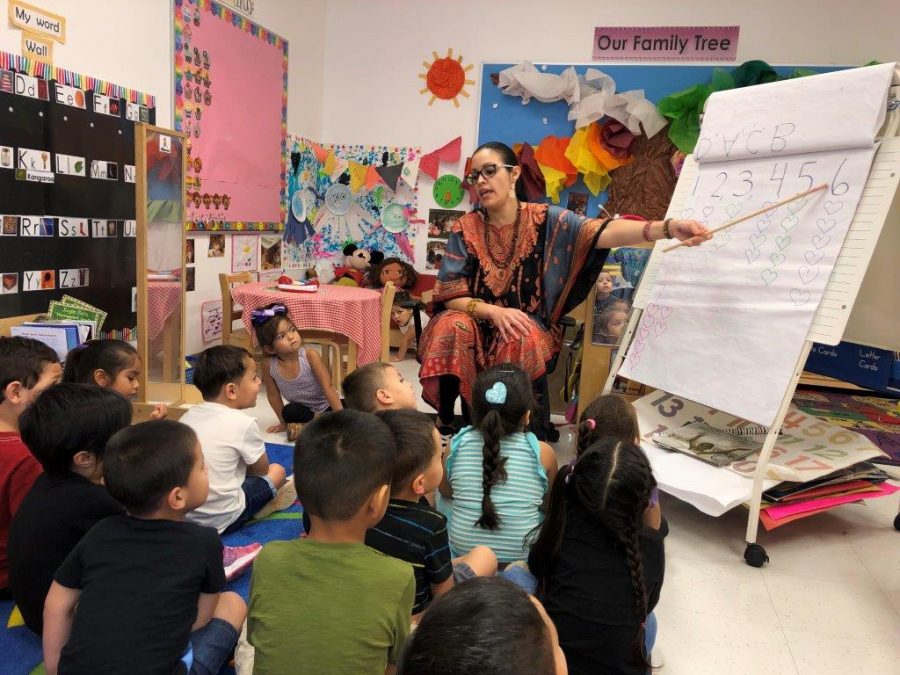
A partner organization since Future Ready Collier’s founding, the Guadalupe Center has a 35-year history of, as their organizational mission decrees, using educational opportunity to help break the cycle of poverty for the children of Immokalee. Currently, Guadalupe is heavily involved in Future Ready Collier (FRC), intentionally encouraging and enabling their leadership and staff at all levels to support the initiative.
Dawn Montecalvo, President of Guadalupe, identifies as a primary motivation behind their agency’s decision to invest in FRC the importance of “identifying shared challenges [so that] everyone has a better understanding.” In Dawn’s words, FRC is effectively “teaching us to eat the elephant one bite at a time.” Facing such a monumental effort as innovating and evolving the Collier County educational ecosystem, having a centralized resource based in trust and collaboration is essential.
Bob Spano, Vice President of Programs, notes that, while in today’s hyper-drive working world, “nobody is looking for more meetings to go to… we’ve grown because of every meeting we’ve attended. We get to learn who is who, and who is doing what. [FRC] ultimately will push us to be better. We’re all in it for the children.” That spirit of collaboration and objective of collective purpose has led Guadalupe to meaningful partnerships and programs they may not otherwise have entered.
For example, FRC’s focus on early childhood readiness prompted Guadalupe leadership to build in proactive checks for rising kindergarteners in their programming to ensure they are registered. Previously, this wouldn’t have been formally measured. Similarly, parents of high-schoolers are asked to report whether their children’s Free Application for Federal Student Aid (FAFSA) applications have been completed within 60 days of the open date. Sheila Oxx, Director of School Age Programs, observes that, “We have started to involve our parents more because of these discussions. We have so much more buy-in if the parents are involved.”
Importantly, FRC is bringing attention to foundational issues that may otherwise have escaped critical attention. Renate Engels, Director of Early Childhood Education, points to the successful pilot program run in conjunction with the Early Learning Coalition to facilitate candidates for Childhood Development Associate credentials to complete, which confers a Department of Children and Families staff credential, a requirement in each classroom of a licensed preschool. Engels comments, “Early childhood had been on the back-burner. With FRC, the focus shifts, and people understand how important these years are.” Further, applauding the kindergarten readiness toolkit, Engels says, “I now have it and can just hand it to a parent. We didn’t have that before. That’s a big asset.”
Challenges persist. The time commitment required by organization staff is substantial, and must be balanced with existing obligations. Partner agencies have to be prepared to keep up the engagement level, throughout their hierarchies.
In assessing FRC’s future growth and impact, Montecalvo is optimistic, discerning that a reason for the initiative’s success has been that it is “not focused on the dollars; it is focused on the solution. We have to keep it solution-based.” She goes on to say, “The key is, if there’s an issue, we have people we can call. We’re all focused on the same mission.” Spano elaborates on the benefits of cooperative power, saying FRC “will enable us to reach more students, and not at a higher cost, because we’re sharing the resources.” Having leaders in place who are able to operate from a position of trust has been key to FRC’s establishment, and will continue to guide its partner nonprofits in service of Collier County children.
Written by: Caroline Ridgway, C1b1 Communications
